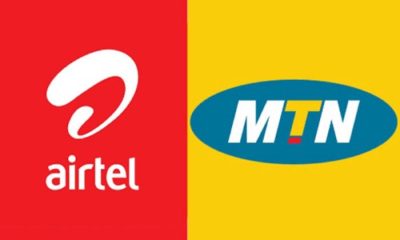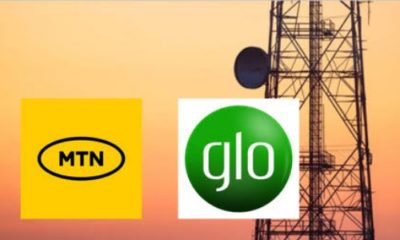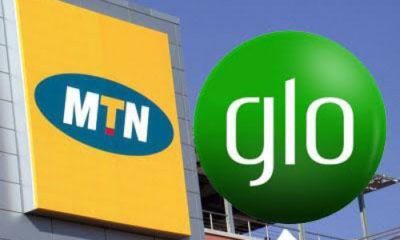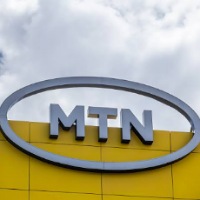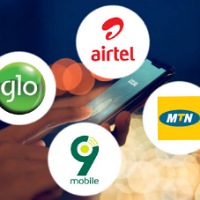Communication
MTN, Airtel renew operating licences for N40bn
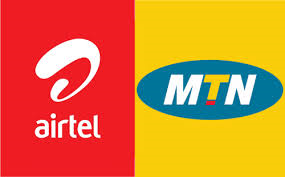
LAGOS-THE Nigerian Communications Commission has approved the renewal and consequent extension of the tenure of MTN’s operating spectrum in the 900MHz and 1800MHz frequency bands, and that of Airtel Nigeria Limited for the sum of $202.2m.
The new licences, which will expire in 2021, consolidate the Digital Mobile Licences and the Unified Access Licences that the two pioneer Global System of Mobile communications operators obtained from the Nigerian Communications Commission in 2001 and 2006, respectively.
While MTN has up to December to pay the sum of $94.2m, our correspondents learnt that Airtel has already paid $108m for the renewal of its DML licence.
The licence extension notification was contained in a letter dated November 2, 2015, and signed by the acting Executive Vice Chairman of the NCC, Prof. Umaru Dambatta.
The letter read in part, “MTN will, however, be required to pay the sum of $94,225,152.75 (N1.9tn) as spectrum fee for the five year extension period.”
The DML licences that proceeded from the spectrum auction held by the NCC in 2001 expire in February 2016 and the operators are required by law to apply for their renewal six months before the expiration if they so wish.
In 2006, the NCC issued the Unified Access Licences to the operators and will expire in 2021. The unified licence offers the operators the chance to offer any kind of services in the telecommunications industry unlike the DML that limits them to GSM services.
With the renewal of the DML spectrum for a period of five years, both licences are now consolidated and will expire in 2021 with no need for separate licences at the expiration of the period.
The Director of Public Affairs, NCC, Mr. Tony Ojobo, confirmed this development in a telephone interview with one of our correspondents in Abuja on Tuesday.
Both MTN and the precursor of Airtel, Econet Wireless Nigeria Limited, had in 2001 won digital mobile licences in an auction that ushered in digital mobile services in the country in August of the same year. Each of the companies paid $285m for the licence.
The third company that was issued the spectrum licence, the Nigerian Mobile Telecommunications Limited, the mobile arm of Nigeria Telecommunications Limited, has not been operational for several years.
In February 2001, pursuant to one of the most transparent mobile licence auctions in the world, the NCC issued the DML to three pioneer mobile operators. The licenses were bundled with spectrum in the 900MHz and 1800MHz frequency bands.
Among other authorisations, MTN also holds a Unified Access Licence and a 3G spectrum licence through which it provides a full bouquet of digital services to its customers in the country.
The Corporate Services Executive, MTN Nigeria, Akinwale Goodluck, said, “We view this extension as a demonstration of confidence in MTN’s capacity to continue to provide ground-breaking and innovative services to its customers, and another milestone in the evolution of the Nigerian communications industry.”
-PUNCH
Communication
Nigeria’s Telecom Market Eyes $11.43bn Value By 2029

In a significant market projection, Mordor Intelligence predicts that the Nigerian telecom sector is set to surge to a value of $11.43 billion by 2029.
The report anticipates a steady growth trajectory with a cumulative average growth rate (CAGR) of 4.70% between 2024 and 2029, based on the current market value of $9.09 billion.
The transformation of Nigeria’s telecom landscape, fueled by government initiatives to boost internet infrastructure and broadband connectivity, coupled with rising data consumption, 5G deployments, and innovative strategies from major telecom players, is expected to drive this substantial market expansion.
The report underscores additional factors propelling the growth of Nigeria’s telecom sector, emphasizing the surge in smartphone adoption.
the report said “Increased smartphone adoption in Nigeria has fueled the development of a dynamic digital services sector. Currently, millions of Nigerians use mobile apps, including social networking sites, e-commerce, and financial services.
“These apps could leverage smartphones’ capabilities to offer speed, convenience, and efficiency, encouraging more people to invest in smartphones.
“In addition to these expansions and collaborations, the growing adoption of digital technologies and government support in aiding the same alongside the 5G technology implementation across the country is analyzed to boost the demand for telecom towers significantly.”
“In addition to these expansions and collaborations, the growing adoption of digital technologies and government support in aiding the same alongside the 5G technology implementation across the country is analyzed to boost the demand for telecom towers significantly.”
Mordor Intelligence highlights that the flourishing e-commerce and digital service platforms in Nigeria are significant drivers behind the escalating demand for dependable telecom services in the country.
Communication
MTN Set To Partially Disconnect Glo Network

The Nigerian Communications Commission (NCC) has granted MTN’s request to partially disconnect Globacom (Glo) from its network owing to unsettled interconnect charges.
Reuben Muoka, the NCC’s Director of Public Affairs, disclosed this in a document named ‘Pre-Disconnection Notice’ on Monday.
The move follows Glo’s persistent failure to clear its outstanding debts despite multiple attempts to resolve the issue.
Under this partial disconnection, Globacom subscribers will solely receive calls from MTN users, while retaining access to other network services like outgoing calls to other networks and data services.
However, they won’t be able to initiate calls to MTN users during this period.
The statement read, “All subscribers are, therefore requested to take notice that the Commission has approved the Partial Disconnection of Globacom to MTN in accordance with Section 100 of the Nigerian Communications Act, 2003 and Paragraph 9 of the Guidelines on Procedure for Granting Approval to Disconnect Telecommunications Operators, 2012.
“At the expiration of 10 days from January 8, 2024, subscribers of Globacom will no longer be able to make calls to MTN but will be able to receive calls.
“The Partial Disconnection, however, will allow in-bound calls to the Globacom network,” it added
Communication
Despite Hardship Nigerians Spent N3.33tn On Calls, Data In 2022
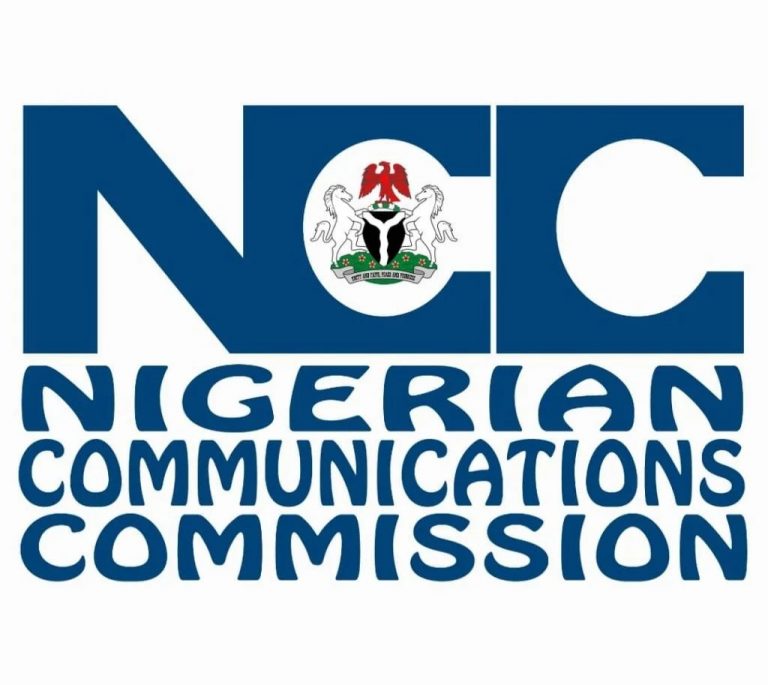
Nigerian telecommunication users, along with others within the country, expended a total of N3.33 trillion on various telecom services such as calls, data, SMS, and more throughout 2022, according to the Nigerian Communications Commission (NCC).
This information comes from the recently published ‘2022 Subscriber/Network Data Annual Report’ by the NCC, which also revealed that telecom companies generated N3.33 trillion in overall revenue for that year.
The report further highlights a noteworthy growth of active voice subscriptions, rising from 195,463,898 subscriptions in 2021 to 222,571,568 by December 2022, marking a 13.86% year-on-year increase.
Commenting on the increase, it said, “The increase in the Operators’ subscriber base was attributed to a number of reasons which includes subscriber loyalty, promos, seasonal effects, aggressive consumer acquisition drive, and competitive product offerings across all the networks.”
It noted that the growth in active subscriptions impacted positively on other derived telecom indicators such as teledensity, Internet penetration as well as broadband penetration.
Data usage also continued its surge in 2022. It increased by 46.77 per cent to 518,381.78TB as of the end of the year.
The NCC stated, “There was an increase in the volume of data consumed at the year-end December 2022 when compared with the year-end December 2021.
“The total volume of data consumed by subscribers increased to 518,381.78TB as of December 2022 from 353,118.89TB as of December 2021. This represents an increase of 46.77 per cent in data consumption within the period.”

